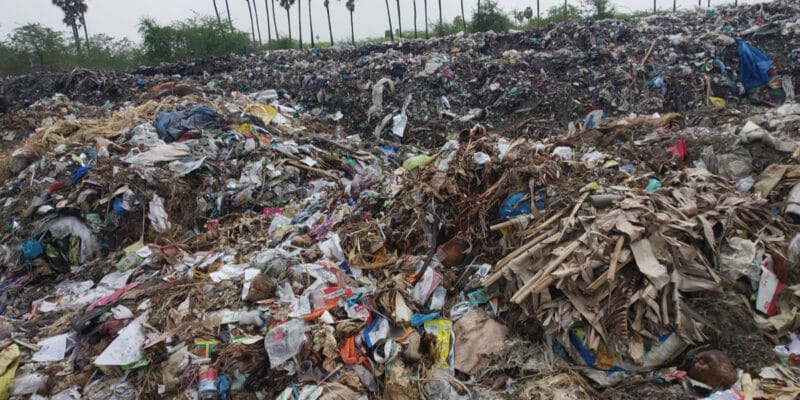The people of Bambouchine, a small village not far from Libreville in Gabon, are angry. The inhabitants of this village are demonstrating their opposition to a project to build a public dump. They fear serious risks of environmental pollution.
There was tension in the air on Sunday April 11th, 2021 in Bambouchine, a town on the outskirts of Libreville in Gabon. The population demonstrated their anger against a project to build a public dump in their area. The demonstration followed the marking of houses to be demolished. The operation carried out a week ago by a mission of people on board all-terrain vehicles would be preparatory, according to indiscretions captured on the spot, to the establishment of a future public dump. “Instead of bringing us water, electricity and a road, they want to bring us a bin,” says Telesphore Edou, the spokesperson for the inhabitants of Bambouchine.
So far, no government authority has confirmed or denied the people’s suspicions. But according to the residents, several delegations have been coming and going in the area without telling the people. The latest mission dates back to April 8th, 2021.
A real danger of pollution
This is the second time that such a project has been brought up to date in Bambouchine. According to authorities contacted by the local press, Bambouchine has already been chosen in the past to host a landfill in addition to the one in Libreville. But according to the same sources, the project was abandoned because of its proximity to the Atlantic Ocean and the Akanda National Park, known for its bird colonies.
In addition to pollution, the construction of a public dump in Bambouchine would de facto drive out the population, some of whom have been living there for 3 to 4 decades.
The fears of the people of Bambouchine following rumours about the establishment of a landfill in their village are all the more well-founded, as the only landfill in Libreville is overflowing. And on March 3rd, 2021, the mayor of the city announced the eviction of the neighbouring populations of the Mindoubé landfill, where 500 to 600 tonnes of waste are dumped every day.
Boris Ngounou







